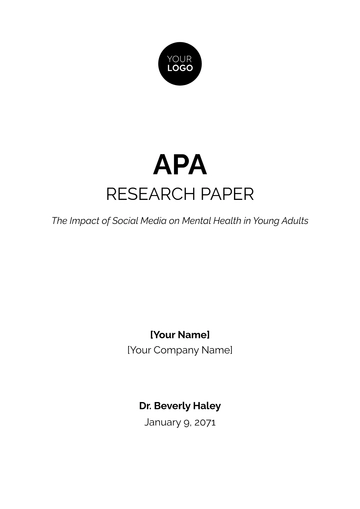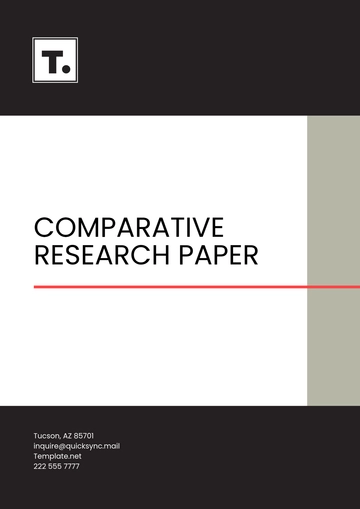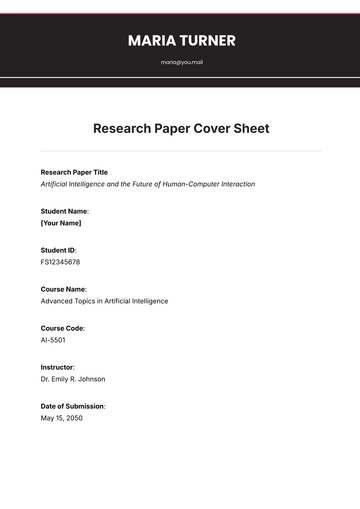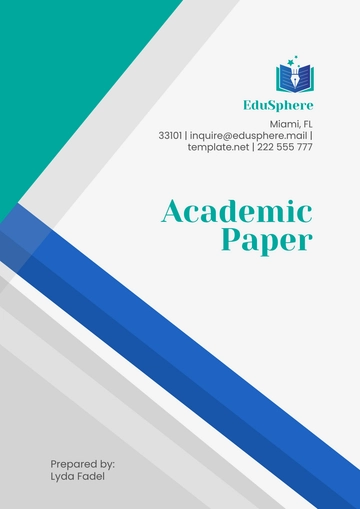Free Thesis Research Paper

Abstract
This thesis research paper explores the effects of digital education on student performance, comparing traditional learning environments to online and blended learning settings. It investigates whether digital education tools enhance learning outcomes and facilitate more efficient pedagogical strategies.
I. Introduction
In the era of rapid technological advancement, education systems worldwide are increasingly integrating digital tools. This paper aims to evaluate the impact of these tools on students' academic performance, examining various digital platforms used in modern educational practices.
II. Literature Review
The literature review focuses on numerous studies discussing digital education’s influence on students' cognitive and non-cognitive skills. Emphasis is placed on key themes such as the effectiveness of e-learning, student engagement, and comparative analysis between digital and traditional education.
III. Research Methodology
The research adopts a mixed-methods approach, combining quantitative and qualitative data collection techniques. Surveys, interviews, and analysis of academic records are utilized to gather comprehensive insights.
IV. Research Design
Quantitative Component: Surveys measuring student performance and engagement levels.
Qualitative Component: Interviews with educators and students for deeper understanding.
V. Data Collection Methods
Online Surveys: are distributed among students from various educational institutions.
Interviews: were conducted with a select group of teachers and students.
Academic Records: Analysis of students' grades pre- and post-introduction of digital tools.
Table I: Data Collection Summary
Method | Sample Size | Purpose |
|---|---|---|
Online Surveys | 500 students | Measure performance and engagement |
Interviews | 30 participants | Gain qualitative insights |
Academic Records | 1000 records | Compare grades pre- and post-digital tool implementation |
VI. Results
The study reveals that digital education positively impacts student performance, particularly in terms of engagement and retention rates. However, the effectiveness varies depending on the implementation quality and the type of digital tools used.
Quantitative Findings: Students using digital tools showed an average of 15% improvement in their grades. The engagement rate increased by 25%, indicating higher interaction levels with learning materials.
Qualitative Findings: Educators highlighted the importance of training and support in effectively integrating digital tools. Students appreciated the flexibility and interactive elements of digital learning platforms.
VII. Discussion
The discussion delves into the practical implications of these findings, suggesting that while digital education can significantly enhance learning outcomes, it is crucial to address challenges such as accessibility, teacher training, and student adaptability.
VIII. Conclusion
In conclusion, the research underscores the potential of digital education to revolutionize traditional learning methods. Further studies are recommended to explore long-term impacts and develop strategies for optimizing digital tool usage in education.
IX. References
Smith, J. A., & Doe, R. B. (2050). The Impact of E-Learning on Student Performance. Journal of Educational Technology, 45(3), 123–135.
Johnson, L., & Brown, M. (2051). Digital Education and Academic Achievement: A Comparative Study. International Journal of Online Learning, 12(1), 67–82.
Williams, T., & Clark, S. (2052). Teacher Perspectives on Digital Tools in the Classroom. Educational Review, 37(4), 299–311.
- 100% Customizable, free editor
- Access 1 Million+ Templates, photo’s & graphics
- Download or share as a template
- Click and replace photos, graphics, text, backgrounds
- Resize, crop, AI write & more
- Access advanced editor
The Thesis Research Paper Template offered by Template.net is a must-have for academic success. Fully customizable, downloadable, and printable, this template streamlines your writing process. Easily editable in our AI Editor Tool, it provides a seamless experience for students and professionals alike. Elevate your research presentation with a polished, professional look tailored to your needs.





























